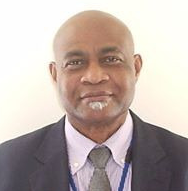Disembodied Voices Correctly Tell London Woman She Has Brain Tumour
In London, a woman without any previous mental health issues heard voices in her head while reading at home. The voices reassured her, saying not to be afraid and expressing a desire to help. Worried about her sanity, she sought medical assistance. A psychiatrist, Mr. Ikechukwu Azuonye, documented her case in the British Medical Journal.
Initially the woman thought she had ‘gone mad’
Born in continental Europe in the mid-1940s, the patient moved to Britain in the late 1960s. After various jobs, she got married, started a family, and became a full-time housewife and mother. Enjoying good health, she rarely visited her general practitioner, and her children were also healthy.
In the winter of 1984, while reading at home, she heard a voice in her head. The voice assured her not to be afraid and claimed to be from the Children's Hospital, Great Ormond Street, with a desire to help. Although she was unfamiliar with the hospital and her children were well, the voice provided her with three pieces of information, unknown to her at the time, to prove sincerity. Despite the accuracy, she believed she had "gone mad" and sought urgent help from her doctor, who referred her to a psychiatrist.
At the psychiatric clinic, a diagnosis of functional hallucinatory psychosis was made, and she received general counseling and thioridazine medication. The voices disappeared after a few weeks of treatment, and she went on holiday. However, while abroad and still on medication, the voices returned, urging her to return to England immediately for urgent treatment, now accompanied by delusional beliefs.
Back in London, the voices provided her with an address—the computerized tomography department of a large hospital. Reluctantly, her husband took her there, hoping to reassure her that it was just in her mind. To her surprise, the voices guided her to request a brain scan, claiming she had a brain tumor and an inflamed brain stem.
A Surgeon Reluctantly Agrees to a Brain Scan
To reassure the patient, Azuonye requested a brain scan after the patient reported hallucinatory voices claiming she had a brain tumor. In the letter to the medical authorities, it was emphasized that no physical signs indicating a brain lesion had been personally observed, and the purpose of the scan was primarily to ease the patient's concerns. Initially, the request was denied due to perceived lack of clinical justification and a suggestion that the psychiatrist might have overly believed the patient's hallucinations.
After negotiation, the scan was finally conducted in April. Initial findings led to a follow-up scan in May, revealing a meningioma—a mass in the left posterior frontal parafalcine region extending through the falx to the right side. The neurosurgeon, to whom the patient was referred, discussed the absence of related symptoms and the decision to proceed with immediate surgery with the patient and her husband. The patient's voices surprisingly supported the decision.
The operation, conducted in May 1984, involved removing the meningioma completely, including its origins in the falx. The patient reported that upon regaining consciousness after the surgery, the voices expressed satisfaction and bid her farewell. There were no complications postoperatively. Dexamethasone dosage was gradually reduced and then stopped, and prophylactic anticonvulsants were prescribed for six months. Antipsychotic medication was discontinued immediately after the operation, and there was no recurrence of hallucinatory voices or delusions expressed by the patient.
Possible Explanations for the Voices Diagnosing a Tumor
At Christmas time in 1996, the patient called Azuonye to wish him a happy holiday and share that she had been completely well for the 12 years following her operation.
It's known that problems inside the head can affect mental health. However, this pateint's case is the only one that Azuonye has encountered where voices in her head seemed to genuinely care about her, diagnosed a problem that wasn't obvious to doctors, guided her to the right hospital, expressed happiness about her treatment, said goodbye, and then disappeared.
The psychiatrist presented the patient's case at a conference where people had mixed opinions. Some believed in paranormal communication, thinking the voices were trying to help the patient by sensing her tumor. Others were skeptical, suggesting the patient might have made up the story to get free treatment on the NHS. However, the patient had lived in Britain for 15 years and was entitled to healthcare. She was so relieved when the voices first went away with medication that she went on vacation to celebrate regaining her sanity.
Another group at the conference thought that, even without physical signs, such a large tumor likely had some impact on the patient. They believed she might have felt something in her head, leading to the fear of a tumor and the hallucinatory voices. Perhaps, they suggested, she unconsciously absorbed information about hospitals, and her mind recreated it as part of the hallucinatory experience. The voices expressing satisfaction after the tumor removal, according to this view, were her mind expressing relief that the emergency was over. The complete disappearance of psychiatric symptoms after the tumor removal suggested a direct link between the symptoms and the presence of the tumor, possibly caused by the tumor itself.
Do you think the patients voices were a paranormal phenomenon? Tell us in the comments.
If you enjoyed this article you might also be interested in mysterious voices on American Airlines Flights or the mysterious voicemail left by Henry McCabe.

